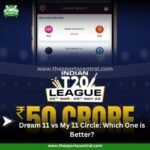The sports memorabilia market, long dominated by physical items such as autographed jerseys, trading cards, and game-worn equipment, is undergoing a transformative change. This transformation is driven by Non-Fungible Tokens (NFTs), a type of digital asset that uses blockchain technology to certify the ownership and authenticity of unique items. NFTs have revolutionized various industries, and their impact on the sports memorabilia market is profound, offering new opportunities for fans, athletes, and collectors alike.
Understanding NFTs and Their Rise
NFTs are unique digital assets verified using blockchain technology. Unlike cryptocurrencies such as Bitcoin or Ethereum, which are fungible and can be exchanged on a one-to-one basis, NFTs are indivisible and unique. Each NFT contains distinguishing information that makes it distinct from any other NFT, which is what gives it value and utility in certifying ownership and provenance.
The rise of NFTs can be attributed to several factors:
Technological Advancement: The maturation of blockchain technology has provided a secure and transparent way to authenticate and transfer digital assets.
Digital Transformation: Increasing digitization across industries has created a robust ecosystem for digital goods and assets.
Cultural Shift: The growing acceptance and fascination with digital ownership and the metaverse have driven interest in NFTs.
Market Validation: High-profile NFT sales and endorsements by celebrities and major brands have legitimized NFTs as a new form of asset.
NFTs in the Sports Memorabilia Market
The Traditional Sports Memorabilia Market
Traditionally, the sports memorabilia market has been built around physical items. Fans and collectors value these items for their tangible connection to the sports they love. However, the market has faced several challenges:
Authentication Issues: Verifying the authenticity of memorabilia has always been a challenge, leading to issues with counterfeits and fraud.
Condition and Storage: The physical nature of memorabilia means items can degrade over time, and they require proper storage conditions to maintain their value.
Limited Accessibility: Rare and valuable items are often out of reach for the average fan, either due to high prices or limited availability.
How NFTs Address Traditional Market Challenges
NFTs address these challenges by providing a digital alternative to physical memorabilia:
Immutable Authentication: Blockchain technology ensures that the ownership and provenance of each NFT are transparent and cannot be tampered with, eliminating concerns about counterfeiting.
Digital Durability: NFTs do not degrade over time and do not require physical storage conditions, making them easier to maintain.
Broad Accessibility: Digital platforms allow for the fractional ownership of NFTs, enabling fans to own a piece of memorabilia without needing to purchase the entire item.
Types of Sports NFTs
The sports industry has embraced NFTs in various forms, including:
Digital Trading Cards: Much like traditional trading cards, digital versions are now minted as NFTs, providing unique and authenticated digital assets for fans to collect.
Video Highlights: Memorable sports moments, such as a game-winning goal or a historic play, are minted as NFTs, allowing fans to own a piece of sports history.
Virtual Merchandise: Digital versions of jerseys, shoes, and other sports gear are sold as NFTs, often with special features or utilities in virtual environments.
Fan Engagement Tokens: NFTs are also used to provide unique fan experiences, such as virtual meet-and-greets, exclusive content, and voting rights on certain team decisions.
Impact of NFTs on the Sports Memorabilia Market
Enhanced Fan Engagement
NFTs have created new ways for fans to engage with their favorite sports and athletes:
Direct Interaction: Athletes and teams can issue NFTs directly to fans, creating a closer connection and allowing for direct interactions.
Exclusive Content: NFTs often come with exclusive content or experiences, such as behind-the-scenes footage or personal messages from athletes.
Community Building: NFT platforms often include community features, where fans can connect, trade, and share their collections, fostering a sense of belonging and engagement.
New Revenue Streams
For athletes and sports organizations, NFTs represent a significant new revenue stream:
Primary Sales: Initial sales of NFTs can generate substantial income, especially for high-profile athletes and teams.
Secondary Market: NFTs often include smart contracts that ensure creators receive a percentage of sales each time the NFT is resold, providing ongoing revenue.
Merchandising Opportunities: Virtual merchandise sold as NFTs can complement physical merchandise sales, expanding the market.
Democratizing Ownership
NFTs democratize the ownership of sports memorabilia by making it more accessible:
Fractional Ownership: Platforms offering fractional ownership allow fans to buy shares of high-value NFTs, making it possible for more people to own a piece of rare memorabilia.
Global Reach: Digital platforms enable fans from around the world to participate in the market, breaking down geographical barriers and expanding the fan base.
Authenticity and Provenance
The immutable nature of blockchain ensures that the authenticity and provenance of NFTs are easily verifiable:
Transparency: Every transaction involving an NFT is recorded on the blockchain, providing a transparent history of ownership.
Verification: Blockchain-based verification removes the need for third-party authenticators, reducing costs and increasing trust in the market.
Case Studies: Success Stories in Sports NFTs
NBA Top Shot
One of the most notable success stories in sports NFTs is NBA Top Shot, a platform developed by Dapper Labs in partnership with the NBA. NBA Top Shot allows fans to buy, sell, and trade officially licensed NBA highlight clips, known as “moments.” These moments are minted as NFTs and have gained immense popularity:
Massive Sales: NBA Top Shot has generated hundreds of millions of dollars in sales, with some moments selling for hundreds of thousands of dollars.
Fan Engagement: The platform has created a new way for fans to engage with the NBA, combining the excitement of collecting with the authenticity and security of blockchain.
Innovation: NBA Top Shot has set a precedent for other sports leagues and organizations, demonstrating the potential of NFTs in sports.
Sorare
Sorare is a fantasy football (soccer) game that utilizes NFTs to represent player cards. These digital cards are officially licensed and can be bought, sold, and traded:
Global Appeal: Sorare has partnerships with major football leagues and clubs around the world, attracting a global audience.
Gameplay Integration: The NFTs have utility within the game, where they can be used to build teams and compete in fantasy leagues, adding an interactive element to ownership.
Market Growth: Sorare has seen significant growth, raising substantial investment funding and expanding its user base rapidly.
Other Notable Examples
CryptoStrikers: The first NFT soccer trading cards platform, which gained popularity during the 2018 FIFA World Cup.
MLB Champions: A blockchain-based game where fans can buy, sell, and trade MLB player figures as NFTs.
Virtual Sports Memorabilia Auctions: Various platforms now host auctions for virtual memorabilia, such as autographed digital posters or exclusive digital artwork featuring athletes.
Challenges and Considerations
Market Volatility
The NFT market is highly volatile, with prices fluctuating significantly:
Speculation: Much of the current market activity is driven by speculation, which can lead to rapid price changes and potential market bubbles.
Sustainability: Ensuring the long-term sustainability of the market requires balancing speculation with genuine value and utility.
Environmental Concerns
NFTs have raised concerns about their environmental impact, particularly due to the energy-intensive nature of blockchain networks like Ethereum:
Carbon Footprint: The process of minting and transacting NFTs consumes significant amounts of energy, contributing to carbon emissions.
Sustainable Solutions: Efforts are underway to develop more environmentally friendly blockchain technologies and to offset emissions through various means.
Legal and Regulatory Issues
The nascent NFT market faces various legal and regulatory challenges:
Intellectual Property: Ensuring that NFTs do not infringe on intellectual property rights is crucial, particularly with digital art and media.
Regulatory Frameworks: Governments and regulatory bodies are still developing frameworks to govern the use of NFTs, which can create uncertainty.
The Future of NFTs in Sports Memorabilia
Technological Advancements
Technological advancements will continue to shape the future of NFTs in sports memorabilia:
Layer 2 Solutions: The development of Layer 2 scaling solutions for blockchains can reduce transaction costs and energy consumption.
Interoperability: Enhancing interoperability between different blockchain networks can expand the utility and accessibility of NFTs.
Enhanced User Experience: Improving the user experience on NFT platforms will make it easier for mainstream audiences to participate in the market.
Integration with Augmented Reality (AR) and Virtual Reality (VR)
The integration of NFTs with AR and VR technologies can create immersive experiences for fans:
Virtual Showcases: Fans can display their NFT collections in virtual showrooms or galleries, enhancing the experience of ownership.
Interactive Experiences: AR and VR can enable interactive experiences, such as virtually attending games or events using NFTs as access tokens.
Expansion into New Sports and Markets
As the NFT market matures, it will likely expand into new sports and markets:
Global Sports: NFTs will continue to gain traction in global sports markets, including cricket, rugby, and esports.
Niche Markets: Lesser-known sports and athletes may also benefit from NFTs, providing new revenue streams and fan engagement opportunities.
Collaboration and Partnerships
Collaboration between sports organizations, athletes, and technology companies will drive innovation:
Exclusive Drops: Partnering with athletes for exclusive NFT drops can create unique and highly sought-after collectibles.
Cross-Promotions: Collaborations between different sports and entertainment sectors can create crossover appeal and broaden the audience.
NFTs are revolutionizing the sports memorabilia market by addressing traditional challenges and creating new opportunities for fans, athletes, and collectors. Through enhanced fan engagement, new revenue streams, democratized ownership, and verifiable authenticity, NFTs are transforming how sports memorabilia is created, bought, and sold. As the market continues to evolve, technological advancements, environmental considerations, and regulatory developments will shape the future of NFTs in sports.
The intersection of blockchain technology and sports memorabilia offers a promising and exciting future, where digital and physical experiences blend seamlessly, and fans can own a piece of their favorite sports moments in ways previously unimaginable. The revolution has just begun, and the potential for growth and innovation in the NFT sports memorabilia market is limitless.
write your review for us at Google reviews.









